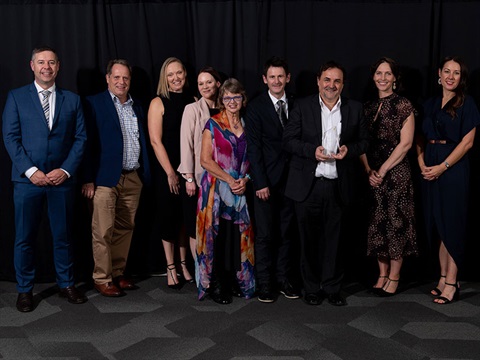Co-Housing project an award-winning 'game-changer'
Published on 27 May 2021

A City of Unley program which offers improved housing solutions in established suburbs has been named a winner in the Local Government Professionals Leadership Excellence Awards.
The Local Government Excellence Awards program recognises outstanding individual achievement and innovation in projects which raise the profile of local government, support and recognise collaborative partnerships and facilitate shared connections across the sector.
Unley’s Active Ageing team took out the ‘Community Partnerships and Collaboration’ award for the co-housing initiative, in concert with UniSA, state government bodies and partnering councils.
‘Co-housing initiatives have been described as quietly revolutionary’ said Unley Mayor Michael Hewitson AM. ‘The potential to create alternative housing options to enable more people to live together and share living space, without tearing down history and impacting the character of our suburban housing legacy is a real game-changer’.
The project was a collaboration between Unley, the Cities of Burnside and Prospect and the Town of Walkerville. Along with housing researchers from UniSA’s Architecture faculty and supported by funding from SA Health’s Office for Ageing Well, the collaborative project also involved the State Planning Commission and an officer of the Department of Infrastructure and Transport (DIT), in the division now known as PlanSA.
Working with UniSA Senior Lecturer in Architecture Dr Damian Madigan and with partnering state government bodies and councils, the co-housing project explored the potential for older residents to ‘age in place’, with Dr Madigan creating innovative new designs for sensitive urban infill.
Like many places, Unley’s population is ageing, and many of its older residents have said they don’t wish to see heritage dwellings replaced by high-rise, higher density buildings which may not meet their physical, social and financial needs.
‘The project has had high-level input and support from some of the most experienced voices in our state’s housing sector and examined good design, with a particular focus on what older people want most from where they live. It involved adapting internationally-accepted co-housing principles to create a model that works in a contemporary Australian context’ the Mayor said.
‘To make the vision a reality, the project needed to address and overcome legislative barriers in some planning and development areas, and it is exciting that we have moved forward to stage two, which will see us working with State Government, which is developing policy and potential planning code amendments that support approval and construction of quality co-housing in the near future’.
‘This program is not just about heritage architecture or protecting our character areas. It goes beyond housing and takes a long-term view to address major social issues of isolation and loneliness for many residents as they get older. We have learnt that people would welcome downsizing in their own home, which would allow them to remain there and to share redesigned space with a couple or young family, so ultimately it’s about supporting a happier, healthier community’.
‘With the challenge facing many first homebuyers wanting to purchase in a tighter housing market, co-housing offers older resident-owners social connection, but also will be an attractive proposition for new homebuyers who don’t want a large house and who’d would like to live in a character suburb of their choice. It’s a win-win scenario for both parties.’